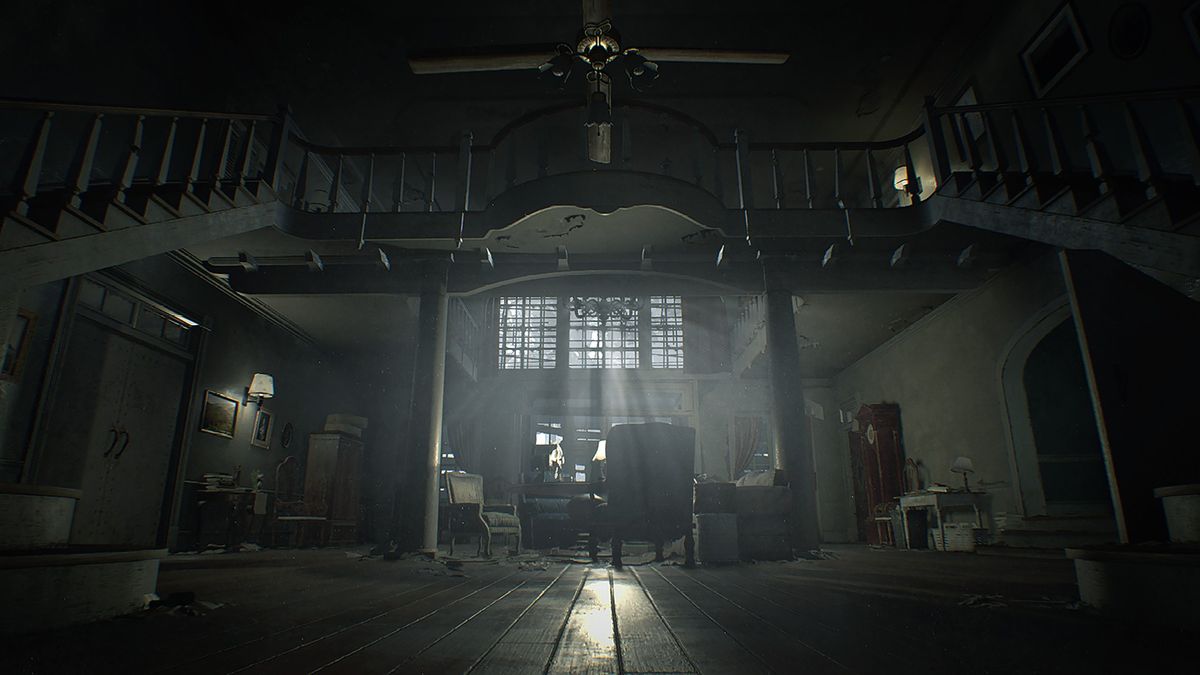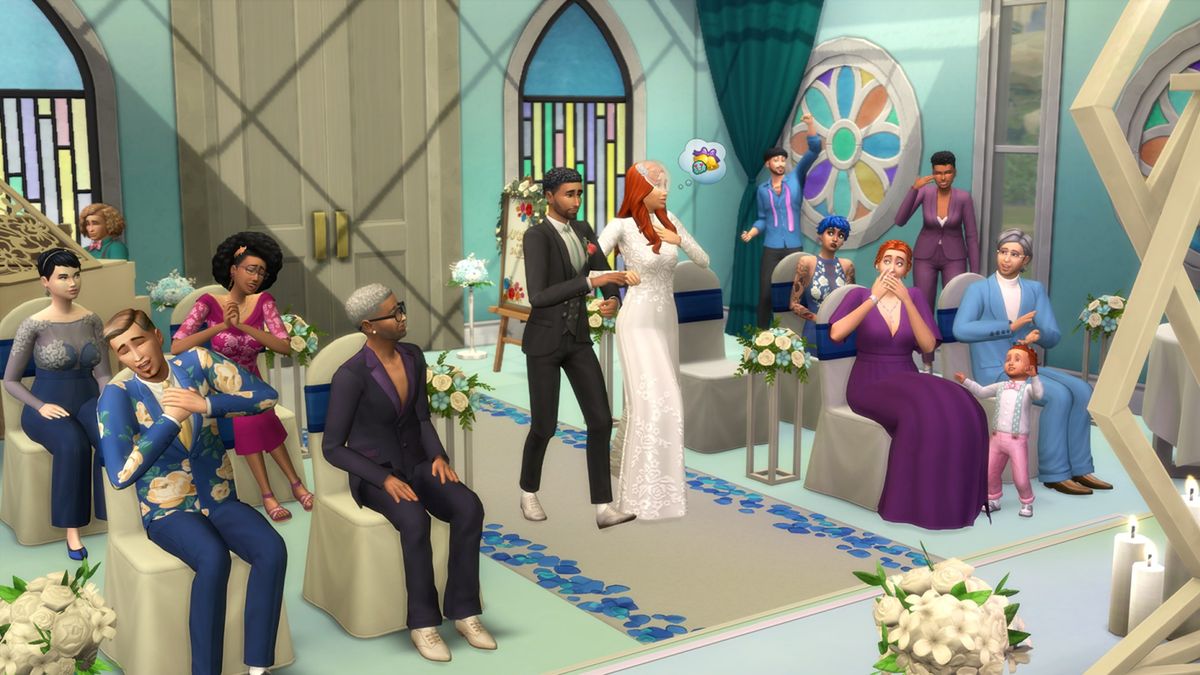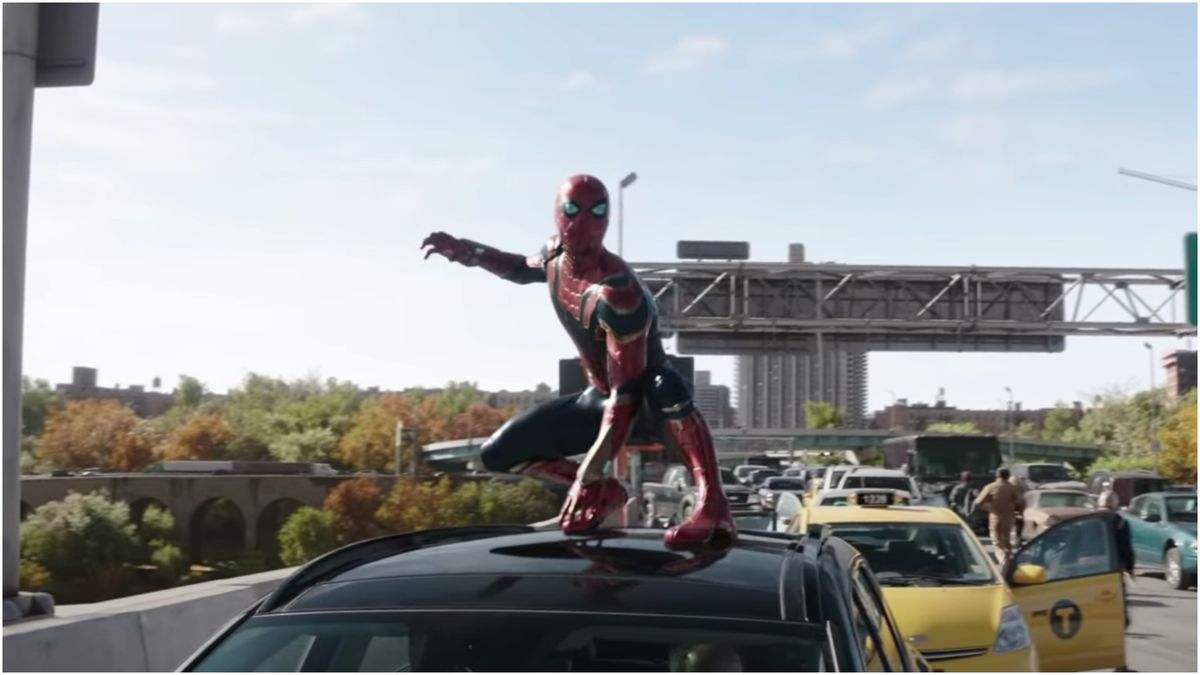“Bah!”, we moan every November, with blindly religious fervour. “Call of Duty! Again! It’s the same again, because Call of Duty is always the same, and that’s just lazy and stupid. Let’s complain smugly until the collective power of our complaints makes it go away”.
And you know what? We’re wrong. Not just in our mad faith in the ability of collective snark to alter the very fabric of reality, but in our conviction that samey CoD sequels are stupid. Are they out of sync with our refined, artistically-minded definition of what our storied medium of digital explodey men should aspire to? Yes. They’re slick, production-line gratification toys for a very mainstream audience. The Big Mac of FPS.

But you know what else Call of Duty sequels and Big Macs have in common, aside from limited nutritional value? They both make a terrifying amount of money by making a lot of people happy. Because while individuals – with their agendas, and personalities, and predilections, and identities, and viewpoints – will very often, with total justification, identify radical reinvention and creative exploration as being important in both art and entertainment, people, collectively, like reassuring familiarity.
That’s why films with recognisable stars are more successful than perhaps better films without them. As Nathan points out in his excellent discussion (opens in new tab) of the matter, stars forge a comforting meta-relationship between audience and entertainment. They exist in our minds as hybrids of their work and real lives, immediately ingratiating us to their new projects via those projects’ association with that imagined persona.
But it isn’t just about people. If you’ll excuse me a rather disgusting, but alas unavoidable, transgression into corporate twat-speak, it’s about ‘brand values’ (sorry). That imaginary portmanteau of actor and career isn’t enticing simply because of the perceived human connection it lends to a product. It’s enticing because the particular shape of its persona will instill an abstract sense of a project’s identity long before there’s anything tangible to show. Vin Diesel signing to a film makes a very different statement than the hiring of Russell Crowe. Immediately that first film appeals to a very different – and much cooler, sexier – audience.

And brand values (sorry again) take many forms. And gameplay, particularly in long-running series, is certainly one. While sequels do need to evolve and grow in order to remain gratifying and relevant, they absolutely need to do that within a warm, reassuring framework of familiarity. Call of Duty is smart in that respect. Because whatever the cynical web forum perception, Call of Duty has evolved immensely. And the precise reason that those who disparage the series haven’t noticed is that Call of Duty really understands how this stuff works.
If you need proof, play Call of Duty 4. Then play Advanced Warfare (opens in new tab). You’ll find that the two games are radically different experiences, sharing the same, tight core shooting mechanics but using them to underpin completely different styles of pacing, game-flow, presentation and interaction in both campaign and multiplayer. The reason that many didn’t notice the transition over the eight years between the two games is that CoD has delivered it as a gradual drip-feed, drastically shifting the focus of the series, while ensuring that no single entry alienated its audience with radical reinvention. That’s why it has maintained and grown its monumental success.
If you need further convincing, let’s move away from the mainstream and into the more reassuring, left-field, hardcore area that we’re all more comfortable discussing (and yes, I’m using an abstracted form of brand values to make this segue work). Let’s talk about Hotline Miami 2 (opens in new tab). Not a bad game, but good Lord, is it ever one that misses the boat in terms of delivering a satisfying sequel. Hotline 2, you see, does the opposite of what CoD has been doing. It delivers its evolutions with too much enthusiasm, throwing in three or four games worth of new gameplay spins with a wild disregard for player comfort.

With its ruthlessly prescribed procession of gimmicks, set-pieces, and radical shifts in focus, it forces its many changes from the original game’s experience down the player’s throat. It’s bad enough that so many of its new ideas are so out of step with the essence of what makes its precursor work, but what’s worse on an experiential level is that its misfires are delivered in a way that constantly forces the player out of their comfort zone, making it impossible to comfortably acclimatise.
Conversely, Bloodborne (opens in new tab), for all of its fundamental changes from Dark Souls (opens in new tab), pulls off the transition flawlessly. The game’s core combat – ie. the key means by which players interact with their surroundings in both games – could not be more different on a surface level. While both demand puristic, focused care, Bloodborne is a fast, flowing carnival of aggression, where Dark Souls is a slow, plodding, methodical exercise in defence. It should be an utterly jarring change, but it isn’t. The reason for this is that Bloodborne, like Call of Duty, embeds the new in a comfortable structure of familiarity.
The arcane, inexplicit way it delivers discovery of its mechanics – both immediate and in terms of its overall framework – is exactly the same as the way Dark Souls forces the player to slowly, gradually explore its possibilities. The skeleton of stats, character development, weapon levelling, and – most crucially – rinse and repeat gameplay loops is immediately familiar, even if what the player does within those loops is very different.

Any Souls player instantly understands how to tackle this new world and new set of interactions, the in-road being exactly the same, even as the scenery and destination are unfamiliar. It’s a fresh, invigorating, surprising journey taken in a tried and trusted vehicle.
And you know what? A lot of the same people who lambaste Call of Duty for trading on the familiar are currently transitioning from Dark Souls to Bloodborne with a ferociously giddy enthusiasm. And while they’re praising the freshness, the excitement, the new things to do, and the seemingly radical reinventions that they’ll be laughing at CoD for not having in eight months time, they’re very possibly not realising that the reason they can enjoy all of those brilliant things is that Grand Overlord Miyazaki has – from Demon’s Souls, to Dark Souls, to Bloodborne – been working not so differently from Activision all along.
 Game News Video Games Reviews & News
Game News Video Games Reviews & News



